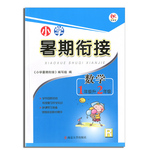题目内容
【题目】An experiment was done on macaques(猕猴).They【1】(give)a chain and taught that they would be fed if they pulled【2】chain.The catch,however,was that every time they pulled the chain,another macaque would be shocked.
Even though it meant risking starvation,87% of the macaques refused【3】(pull) the chain if they knew it would hurt another macaque.In one case,a macaque went a full two weeks without eating rather than deal with the guilt of【4】(hurt) another animal.
It's pretty impressive when you compare that to another study because another group of【5】(science) did a similar experiment on a different animal-humans.They paid people to pull a lever(杠杆)【6】they said would shock another person with【7】(electric).That other person was an actor who pretended to be【8】great pain every time they pulled the lever.In the experiment,a full 87% of the people pulled the lever all the way to a space【9】(mark) "Danger!Severe Shock!"even while hearing their victim scream painfully.It was all to get a few dollars that they could have【10】(easy) earned by getting a job at McDonald's.
【答案】
【1】were given
【2】the
【3】to pull
【4】hurting
【5】scientists
【6】that/which
【7】electricity
【8】in
【9】marked
【10】easily
【解析】本文主要讲述了科学家做的两个实验,一个以猕猴为对象,一个以人类为对象。本文考察词性变换,固定短语搭配以及定语从句引导词。
【1】考察被动语态。句意:它们被给予一根链条。全文时态为一般过去时,所以填were given。
【2】考察冠词。句意:它们被教导如果拉动链条,它们将会被投喂食物。Chain在前文已经出现,此处特指“这个链条”,所以用定冠词the。
【3】考察固定短语搭配。拒绝做某事:refuse to do sth. 句意:87%的猕猴拒绝拉动链条。故填to pull。
【4】考察非谓语动词。句意:一只猕猴整整挨了两个星期的饿,也不愿面对伤害另一只猕猴的罪恶感。介词of后面应该接名词或动名词,所以将hurt改为动名词形式hurting。
【5】考察单复数。根据语境“另外一组科学家”可知应该填science的名词形式scientist,表示“科学家”。一组科学家不可能是单数,所以还要将scientist变为复数形式scientists。
【6】考察定语从句。句意:他们给拉动杠杆的人钱,杠杆会电击另外一个人。先行词为a lever,所以用that或which引导定语从句。故填that/which。
【7】考察词性变化。句意:杠杆用电触击另外一个人。所以将形容词electric变为名词electricity,表示“电,电流”。故填electricity。
【8】考察介词。句意:另外一个人是演员,每次别人拉动杠杆,他就假装处于极大的痛苦中。固定短语in pain:处于痛苦中。类似的短语还有in danger:处于危险中。故填in。
【9】考察非谓语动词。space和mark之间为被动关系,故用mark的过去分词形式做后置定语,表示:标记着“危险!重击!”的地方。故填marked。
【10】考察词性变化。句意:那只是为了得到几美元,那几美元他们在麦当劳工作就可以轻松赚到。根据语境可知将形容词easy改为副词easily,修饰动词earn,表示“轻轻松松挣到”。故填easily。

 学而优暑期衔接南京大学出版社系列答案
学而优暑期衔接南京大学出版社系列答案 Happy holiday欢乐假期暑假作业广东人民出版社系列答案
Happy holiday欢乐假期暑假作业广东人民出版社系列答案